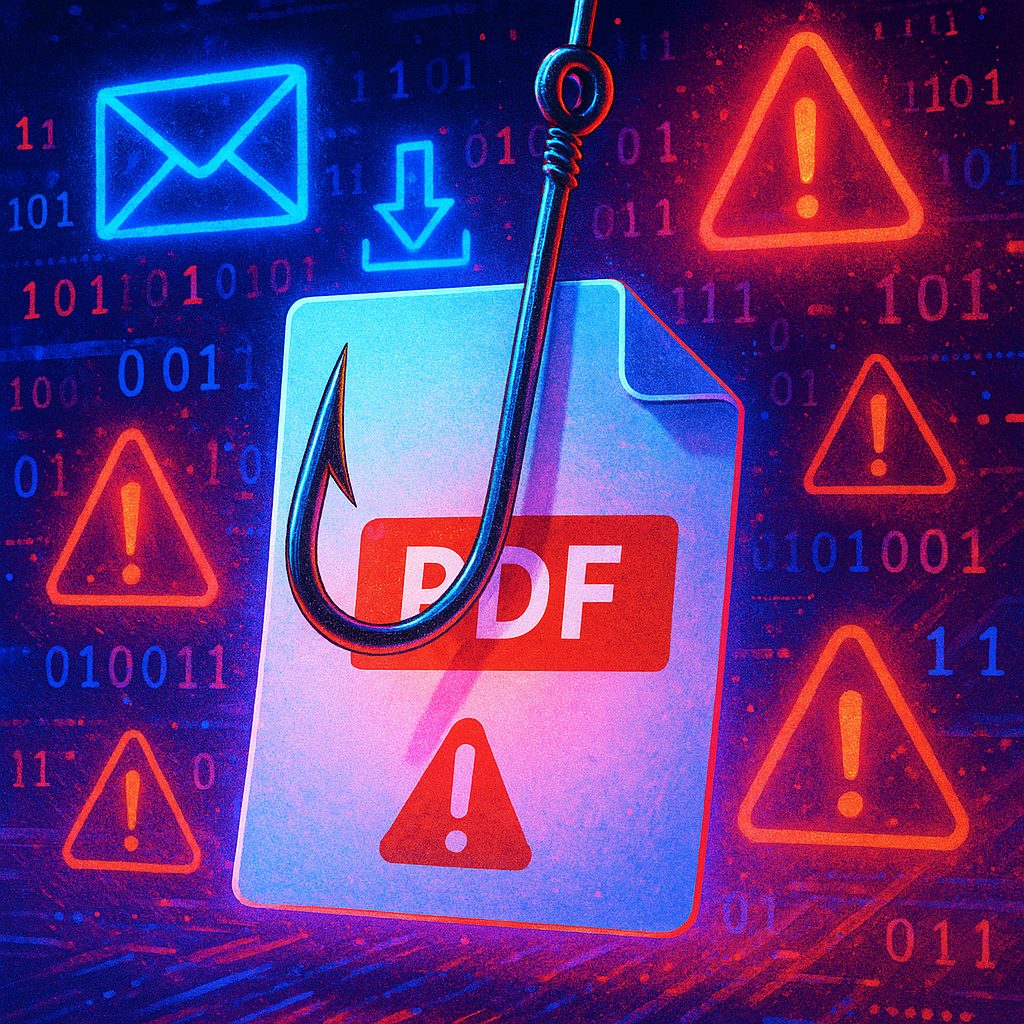
Scam of the Week: Something's Phishy in This AppSheet Message
In this week’s scam, you receive an email from Google AppSheet, a service used to build web and mobile applications. The email is from a legitimate AppSheet email address with an alarming subject line about a trademark violation notice. The email contains a link that directs you to a login page, where you are prompted to enter your username and password. The notice seems urgent, and you may be tempted to log in to resolve the issue.

Scam of the Week: An Apple a Day Won't Keep This Phish Away
In this week’s scam, you receive an email for an Apple iCloud Calendar invitation. The invitation is sent from a genuine Apple email address and appears to be related to a purchase invoice. When you look at the invitation’s notes, you see an alarming message about a large charge to your PayPal account. The message includes a phone number and directs you to call to speak to a support team.

Scam of the Week: This Isn't Your Pal, It's a Phish
In this week’s scam, cybercriminals are using a clever trick that makes their phishing emails seem more real than ever. You receive an email from a real PayPal email address. The email contains an invoice for a large purchase you did not make, and a phone number for you to call if you want to dispute the charge. Even though the email comes from a real PayPal email address, this is actually a scam.

Scam of the Week: A Taxing Smishing Scam
Cybercriminals are targeting taxpayers in the state of California by sending text messages that look like they’re from the Franchise Tax Board (FTB), a state tax agency. The message claims your tax refund has been approved and instructs you to select a link to enter your payment information. There is a very strict deadline, and the instructions state that you will lose your tax refund if you do not enter your payment information quickly.

Scam of the Week: This Isn’t the Help Desk You're Looking For
In this week’s scam, you receive an unexpected call on Microsoft Teams, an app for voice calls, sending messages, and video chats. The call is from a user named “IT SUPPORT” or “Help Desk.” This user’s profile might even have a check mark emoji to make it look official. The caller claims there’s an urgent problem with your computer and that the IT department must fix it immediately.

Scam of the Week: This Free Gift Has a High Cost
In this week’s scam, you get an email that looks like it’s from a trusted brand, such as Costco or AAA. The email promises a free gift if you fill out a short survey and pay a small shipping fee so that the gift can be delivered to you. The email may create a sense of urgency by claiming that only a few free gifts are left. All you have to do is click a link in the email, which takes you to a website with the survey.

Scam of the Week: Spoiler Alert! This Job Isn’t Real
In this week’s scam, cybercriminals are targeting marketing professionals with a job opportunity that seems too good to be true. You receive an email that appears to be from Netflix’s HR department offering you a high-level marketing position. If you reply to this email, you will soon receive a second email that is sent from the “Netflix HR team.” This email contains a link for you to click so that you can schedule a job interview.

Scam of the Week: Who Sent This Package? You Don't Want to Know
You may be familiar with QR codes. They are square black and white barcodes that you can scan with your phone’s camera to be instantly directed to a website or mobile app. Unfortunately, cybercriminals can use QR codes to their advantage. This scam begins when you receive a package in the mail that you weren’t expecting. There’s no return address or sender information, but a QR code is printed on the box.

Scam of the Week: Don’t Fall For This Insta-Scam
In this week’s scam, cybercriminals are using a clever trick to target Instagram users. You receive an email that looks like an official security alert from Instagram that claims that someone tried to log in to your account. The email contains instructions to “Report this user” and provides a link for you to select. This situation seems urgent, and you may be tempted to act quickly.

Scam of the Week: Smishing in the Amazon
In this week's scam, you receive an unexpected text message that looks like it’s from Amazon. The message claims that an item you bought failed a “routine quality inspection” or has been recalled. The text offers you a full refund, and you don’t even need to return the item. You only have to tap a link in the text message to get your money back.

Scam of the Week: This Job Doesn't Pass a Background Check
In this week's scam, cybercriminals are targeting job-seekers. Let’s say that you’re searching for work using a job site such as ZipRecruiter or LinkedIn. You come across a job posting that seems suspiciously good. The position appears to be with a well-known organization and offers a high salary for what seems to be an easy role. You apply, and within a day, you receive a follow-up email from a "hiring manager."

Scam of the Week: Hidden Gems
In this week's scam, cybercriminals are using Google Workspace's Gemini AI tool to try to trick you in an unusual way. You receive an email that appears ordinary, and it doesn’t have any suspicious links or attachments. But if you ask Gemini to summarize it, the results seem alarming. Gemini’s summary of the email shows you urgent warnings about your password being compromised, along with a support number for you to call so that you can resolve the problem. However, this warning from Gemini is completely false!

Scam of the Week: When PDFs Become Phish-Delivering Files
In this week's scam, cybercriminals are trying to trick you with PDFs that contain malicious content. You receive an email with a PDF attachment that appears to be from a major organization like Microsoft, DocuSign, or PayPal. The subject of the email seems alarming and makes it appear that you have an issue with your account. If you open the PDF attachment, it contains official logos and professional formatting. It appears legitimate, and the instructions direct you to call a customer service phone number.

Scam of the Week: WhatsApp with This Phone Number?
In this week's scam, cybercriminals are using phone calls to try to scam you. This type of scam is also known as vishing. You receive a strange call on WhatsApp, a calling and messaging app. The call is from an unknown number, and when you answer, you hear a robotic voice that asks you to add a phone number to your WhatsApp contacts. The call then quickly ends without any further explanation. It seems unusual, but harmless.

Scam of the Week: A Fine Way to Get Scammed
In this week’s scam, you receive a text message that appears to be from the Department of Motor Vehicles (DMV). The text states that you must pay a traffic fine by a certain date. If you don’t pay on time, your vehicle registration will be suspended, and you’ll lose your driving privileges. Some versions of the message even state that you’ll go to jail or your credit score will be affected if you don't pay.

Scam of the Week: Don’t Sail with These Scammers
This week, cybercriminals are targeting travelers by using online advertisements as part of a scam, also known as “malvertising”. If you book an ocean cruise and have questions about your reservation, you probably search Google to find a customer service phone number. The top search result is a sponsored Google Ad that appears legitimate, and even contains a phone number.

Scam of the Week: Don't Make This Smish-take
In this week’s scam, you receive an unexpected text message that makes it appear that someone is trying to log in to your email or social media account. The message contains a multi-factor authentication (MFA) code and what appears to be a customer support number for you to call if you did not request the code. These types of codes are usually only sent to you when you are logging in to an account. If you receive one unexpectedly, it might make you think an unauthorized person is trying to access your account.

Scam of the Week: Scamazon Prime
This week, cybercriminals are targeting Amazon Prime customers located in France. You receive an email stating that your Amazon Prime subscription will automatically renew. The email contains your name and address, making it appear convincing. It claims your subscription will automatically renew, but at a very expensive cost.

Scam of the Week: Deepfake, Deep Trouble
In this week’s scam, cybercriminals are using artificial intelligence (AI) to try to trick you into clicking malicious links. You receive a text message or voice call from someone claiming to be a senior United States government official. They will try to establish a friendly relationship with you by sounding genuine, making the official seem trustworthy.

Scam of the Week: Don’t Call These Crypto Criminals
In this week’s scam, you receive an email that appears to be from Coinbase, a platform that allows you to buy, sell, and store cryptocurrency (crypto). The email says that a new wallet address has been set up to make withdrawals from your account. Wallets are tools that are used to manage crypto that you sell or receive. An unexpected email about a new wallet might alarm you, since it might seem like someone is making unauthorized purchases on your account.
